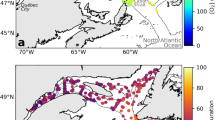
Overview
- Most recent publication on the Black Sea Region
- Covering its ecology and energy resources
- Including hydrogen production from H2S and other sources and its storage
Part of the book series: NATO Science for Peace and Security Series C: Environmental Security (NAPSC)
Access this book
Tax calculation will be finalised at checkout
Other ways to access
About this book
NATO Advanced Research Workshop “The Black Sea: Strategy for Addressing its Energy Resource Development and Hydrogen Energy Problems” was held in order to evaluate the Black Sea Region’s environment, discuss the ways and means of protecting it, and to evaluate the methods of production of the energy carrier, hydrogen. Papers presented at the workshop, proposed various methods of hydrogen production from the hydrogen sulfide, from marine macro algae and other bacteria, storage and utilization of hydrogen, oil spills and pollutants in the Black Sea, degradation of the sea and the land around the region, and ways and means of protecting the environment.
The workshop participants unanimously expressed the need to establish close cooperation amongst the Region’s countries regarding the development of its energy resources, and at the same time protecting its environment. These recommendations have been put together in the Batumi Manifesto.
This book entitled “Black Sea Energy Resource Development and Hydrogen Energy Problems” puts together the papers presented at the workshop, starting with the Batumi Manifesto. This valuable volume should be in the libraries of all the scientists, engineers, environmentalists, economists and decision makers involved in the development of the Black Sea Region and in the introduction of clean and abundant Hydrogen Energy.
Similar content being viewed by others
Keywords
Table of contents (32 papers)
-
Front Matter
Editors and Affiliations
About the editors
NATO Advanced Research Workshop “The Black Sea: Strategy for Addressing its Energy Resource Development and Hydrogen Energy Problems” was held in order to evaluate the Black Sea Region’s environment, discuss the ways and means of protecting it, and to evaluate the methods of production of the energy carrier, hydrogen. Papers presented at the workshop, proposed various methods of hydrogen production from the hydrogen sulfide, from marine macro algae and other bacteria, storage and utilization of hydrogen, oil spills and pollutants in the Black Sea, degradation of the sea and the land around the region, and ways and means of protecting the environment.
The workshop participants unanimously expressed the need to establish close cooperation amongst the Region’s countries regarding the development of its energy resources, and at the same time protecting its environment. These recommendations have been put together in the Batumi Manifesto.
This book entitled “Black Sea Energy Resource Development and Hydrogen Energy Problems” puts together the papers presented at the workshop, starting with the Batumi Manifesto. This valuable volume should be in the libraries of all the scientists, engineers, environmentalists, economists and decision makers involved in the development of the Black Sea Region and in the introduction of clean and abundant Hydrogen Energy.
Bibliographic Information
Book Title: Black Sea Energy Resource Development and Hydrogen Energy Problems
Editors: Ayfer Veziroğlu, Marat Tsitskishvili
Series Title: NATO Science for Peace and Security Series C: Environmental Security
DOI: https://doi.org/10.1007/978-94-007-6152-0
Publisher: Springer Dordrecht
eBook Packages: Energy, Energy (R0)
Copyright Information: Springer Science+Business Media Dordrecht 2013
Hardcover ISBN: 978-94-007-6151-3Published: 03 May 2013
Softcover ISBN: 978-94-007-6157-5Published: 14 May 2013
eBook ISBN: 978-94-007-6152-0Published: 20 April 2013
Series ISSN: 1874-6519
Series E-ISSN: 1874-6543
Edition Number: 1
Number of Pages: XIV, 438
Number of Illustrations: 106 b/w illustrations, 50 illustrations in colour
Topics: Renewable and Green Energy, Renewable and Green Energy, Sustainable Development



